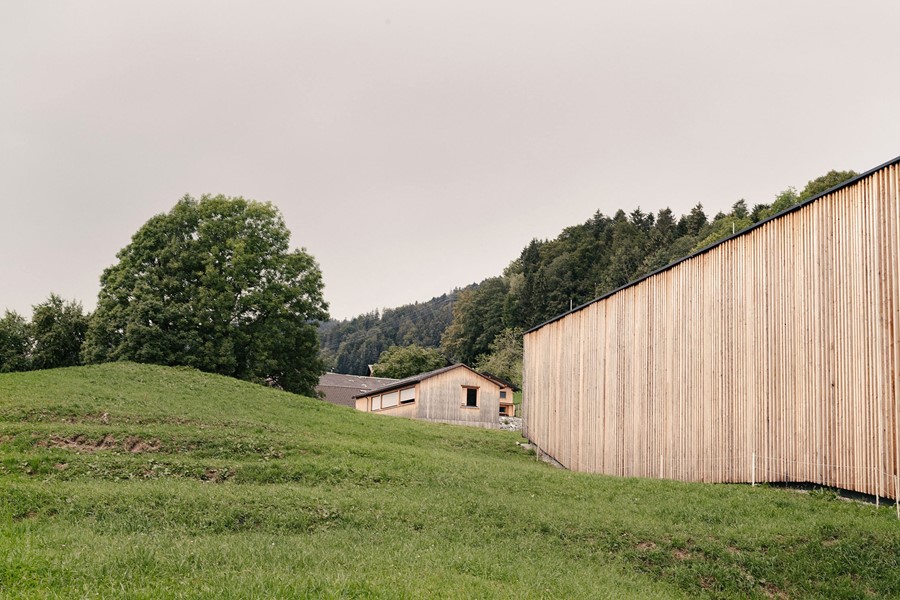To mark Earth Day 2021, we share a list of beauty and skincare brands whose values, products and practices have the environment in mind
The conversation around sustainability within the beauty industry has become more urgent in recent years as consumers are increasingly aware of the climate crisis we face. The label of ‘sustainable’, however, is seemingly used with greater abandon, its definition ever-broadening and, in some cases, making for more confusion than clarity. To celebrate Earth Day on April 22, we have rounded up a selection of – coincidentally, 22 – planet-friendly skincare and beauty brands, whose products are as good as their environmental credentials. Rather than measure a brand’s overall ‘sustainability’ – no company, after all, is perfect – we’ve looked at three planet- and people-friendly categories: packaging, production and initiatives, and ingredients. There is some overlap across these sections – as some brands truly excel in all three – but by separating these concerns we hope to provide a useful guide to how a selection of our favourite skincare brands are thinking of the planet and its future.
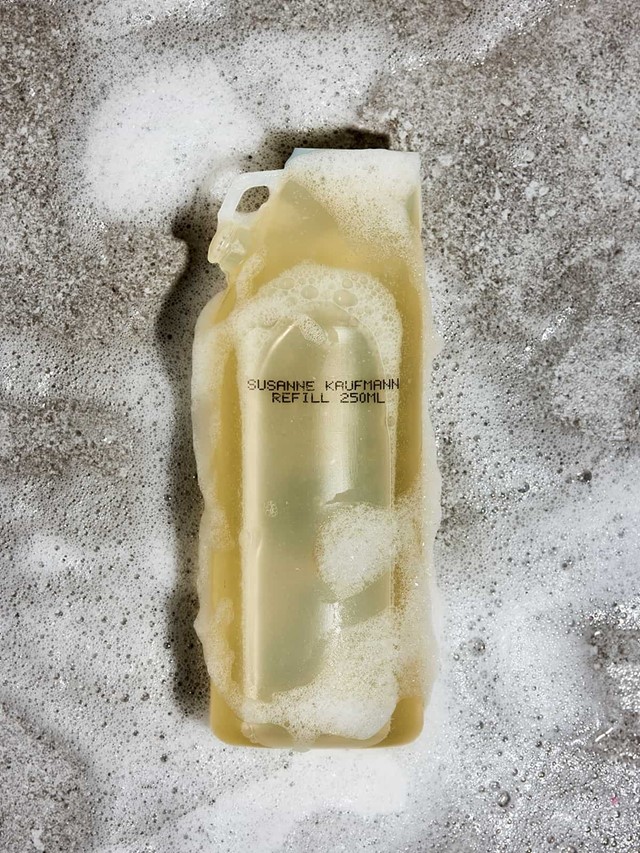 Courtesy of Susanne Kaufmann
Courtesy of Susanne KaufmannPackaging: Susanne Kaufmann
Susanne Kaufmann’s alpine, all-natural products have long been cult favourites among skincare aficionados. Beyond production which runs on solar, thermal and green electricity sources, Susanne Kaufmann has recently introduced refills for three best-selling products. The recyclable plastic pouches are made from 75 per cent post-consumer materials, and are designed to make Susanne Kaufmann’s glass bottles reusable.
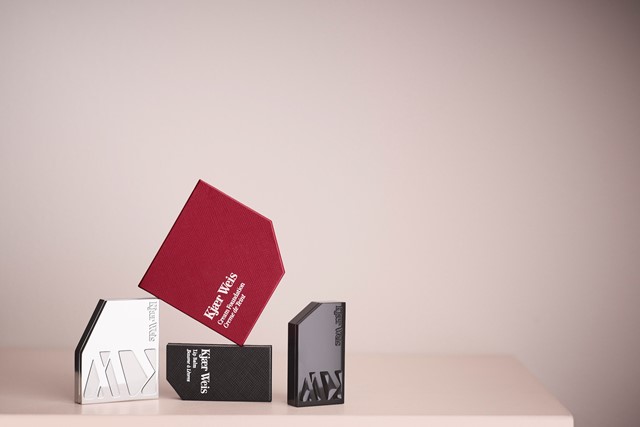 Courtesy of Kjaer Weis
Courtesy of Kjaer WeisPackaging: Kjaer Weis
Kirsten Kjaer Weis founded her eponymous beauty and skincare brand with ethical and environmental concerns in mind, over a decade into her career as a make-up artist. Kjaer Weis products are formulated using only organic or natural ingredients, and the brand’s chic red boxes are recyclable, refillable and biodegradable. Plus, much of the skincare and beauty line is available to purchase in either metal and glass bottles or as refills.
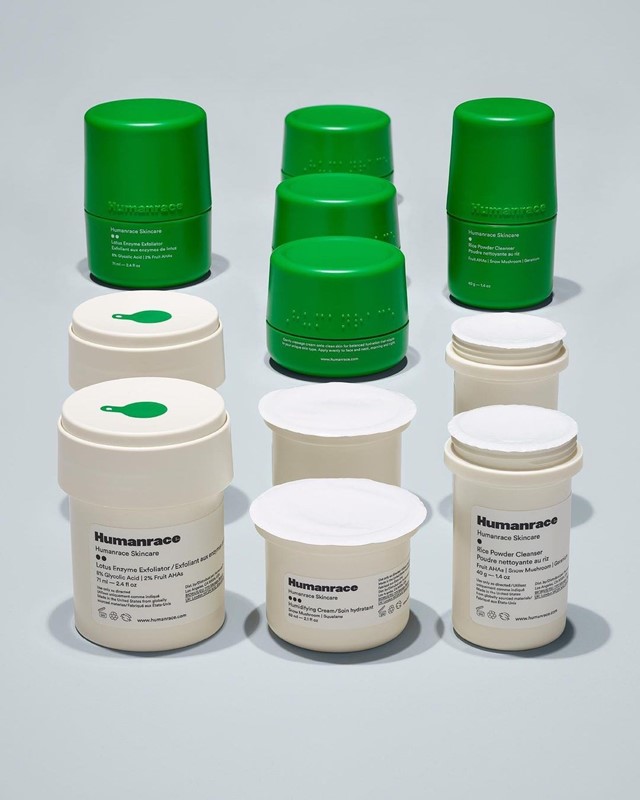 Via @humanrace on Instagram
Via @humanrace on InstagramPackaging: Humanrace
Pharrell Williams launched Humanrace in 2020, a skincare line “with a mission to empower all people in their pursuit of wellbeing”. Its core three products – Rice Powder Cleanser, Lotus Enzyme Exfoliator and Humidifying Cream – are packaged in 50 per cent recycled plastic, cartons created using Forest Stewardship Council-certified materials, and the company uses non-toxic vegetable dyes. Plus, Humanrace offers refills for its products.
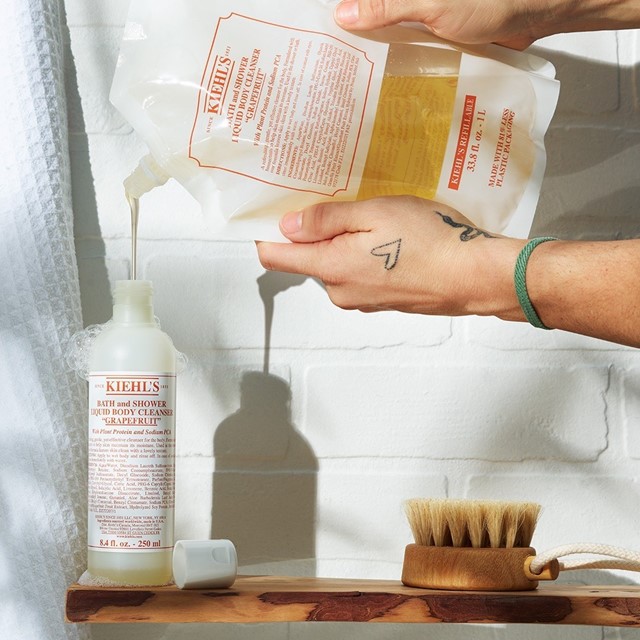 Via @kiehls on Instagram
Via @kiehls on InstagramPackaging: Kiehl’s
Storied New York-founded brand Kiehl’s is one of the industry leaders in sustainability, from its natural ingredients to fighting plastic pollution (the company partnered with environmental charity Hubbub on a campaign to clear London’s waterways of plastic, even creating a boat made entirely of old Kiehl’s product containers). ‘Recycle & Be Rewarded’ is a recycling scheme encouraging customers to bring empty products back to Kiehl’s stores.
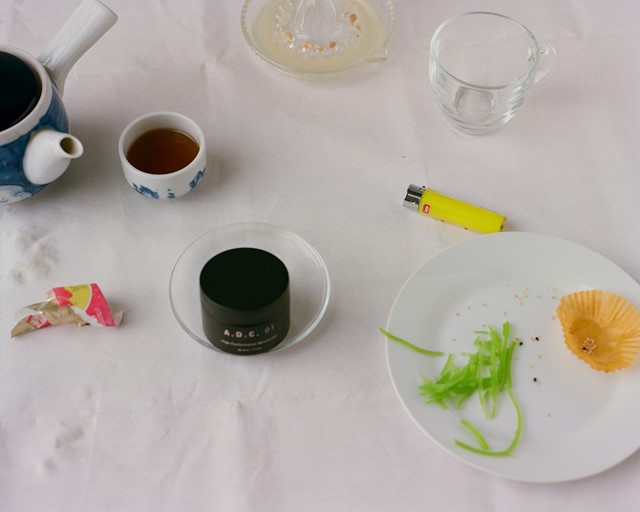 Photography by Lola & Pani, Set Design by Hella Keck
Photography by Lola & Pani, Set Design by Hella KeckPackaging: A.D.C. Beauty
Make-up artist Adam de Cruz launched his namesake brand A.D.C. Beauty with the aim of simplifying skincare routines with high-performance products derived from plant-based ingredients. Recyclable glass jars and cartons made from recycled coffee cups make up the young brand’s packaging range.
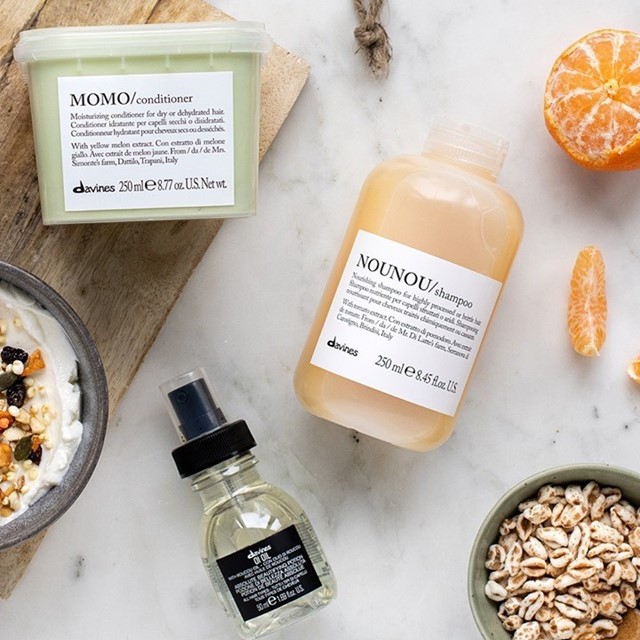 Via @davinesofficial on Instagram
Via @davinesofficial on InstagramPackaging: Davines
Founded more than 35 years ago in Parma, Italian haircare brand Davines is a go-to name among hair salons across the world. Ethics and sustainability have been at the core of Davines – which is a certified B-Corp – since it started producing its range of plant-based hair products, all created using renewable electric energy. Davines put a lot of thought into developing a packaging strategy which impacts the environment as little as possible: the result incorporates recycled and recyclable plastics, with the aim of eliminating the use of virgin materials wherever possible.
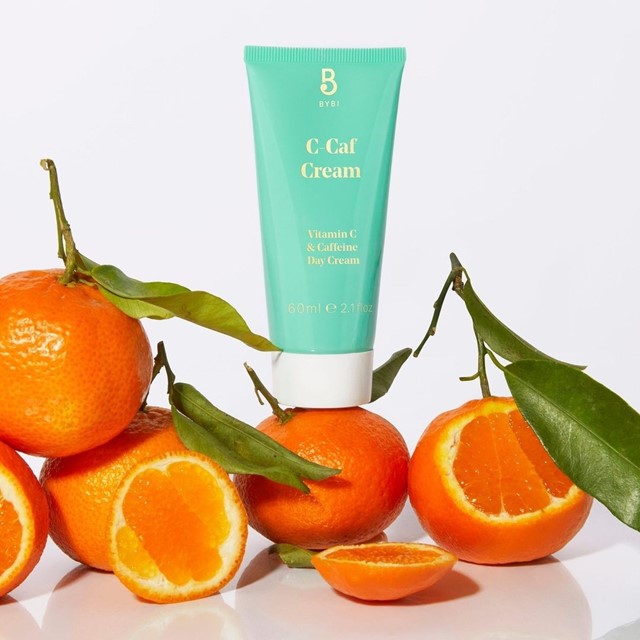 Via @bybibeauty on Instagram
Via @bybibeauty on InstagramPackaging: Bybi
UK-based skincare brand Bybi describes its products as “skin-positive, pro-planet beauty”, and puts as much emphasis on its environmental impact as the effectiveness of its products. Bybi’s packaging is central to this ethos: products are housed in either the carbon-neutral, recyclable plastic alternative sugarcane polyethylene or recycled glass, and orders arrive in grasspaper boxes.
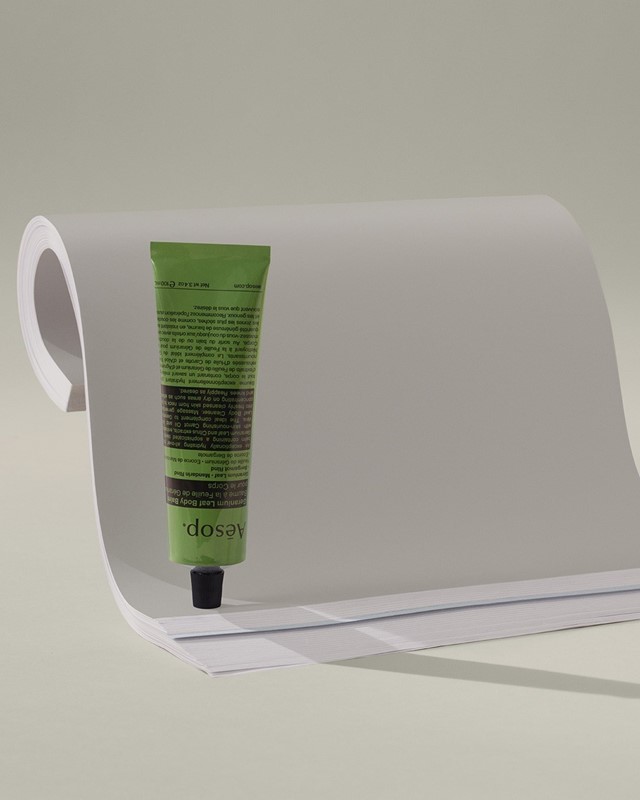 Via @aesopskincare on Instagram
Via @aesopskincare on InstagramProduction & Initiatives: Aesop
Cult Australia-founded brand Aesop has plans to become a fully regenerative business by 2030 – meaning by that year it aims to reach net zero carbon emissions – and recently announced its B-Corp certification. Among a variety of initiatives designed to continually improve the global company’s sustainability and ethics, Aesop offsets carbon emissions via projects in Australia, India and Zimbabwe, and donates to organisations which work to increase literacy in marginalised communities through The Aesop Foundation.
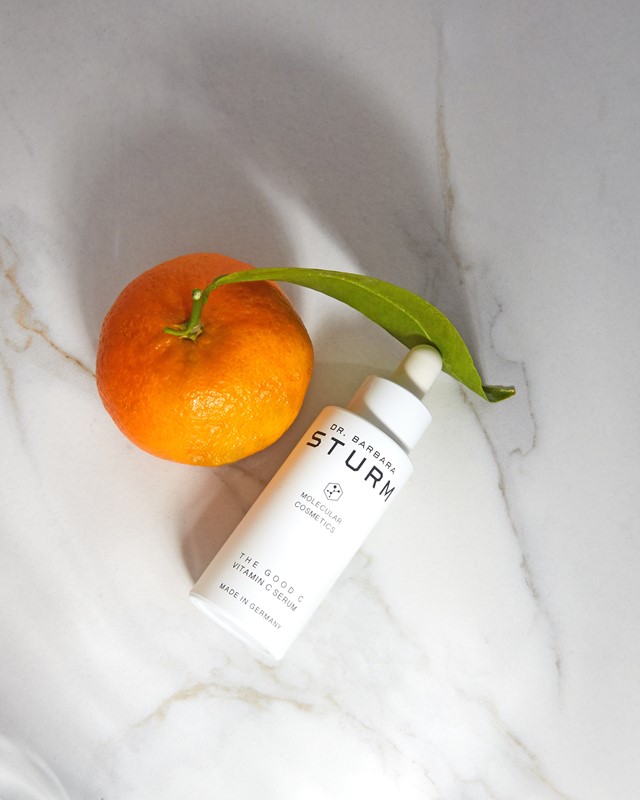 Courtesy of Dr. Barbara Sturm
Courtesy of Dr. Barbara SturmProduction & Initiatives: Dr. Barbara Sturm
Dr. Barbara Sturm’s molecular skincare products count fans the world over, and the brand has recently increased its commitment to planet- and people-friendly initiatives throughout its production process. Notably, Dr. Barbara Sturm’s products are manufactured using CO2 neutral processes and green energy, and innovative waste management systems and water purification processes are in place.
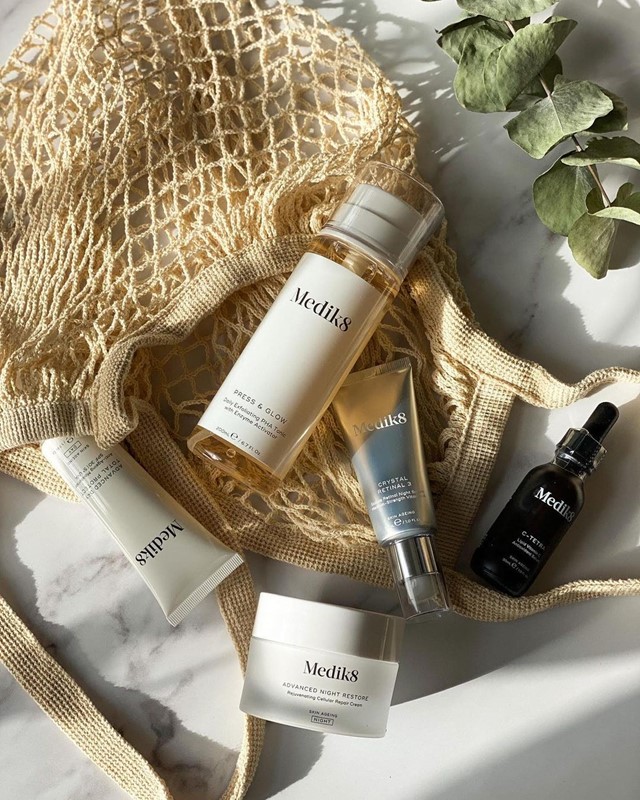 Via @officialmedik8 on Instagram
Via @officialmedik8 on InstagramProduction & Initiatives: Medik8
Medik8’s long-term aim is to become “the world’s most sustainable professional-led skincare brand”, and it is certainly pioneering many planet-friendly initiatives. The brand’s packaging, for example, is already recycled and recyclable, but it is working towards using plastic waste sourced from oceans, rivers and seas for its products. Its production and company values are planet-focused: Medik8’s buildings run on renewable energy, it uses cold processes, and in 2019 launched a series of animal welfare funds called The Zipper Foundation.
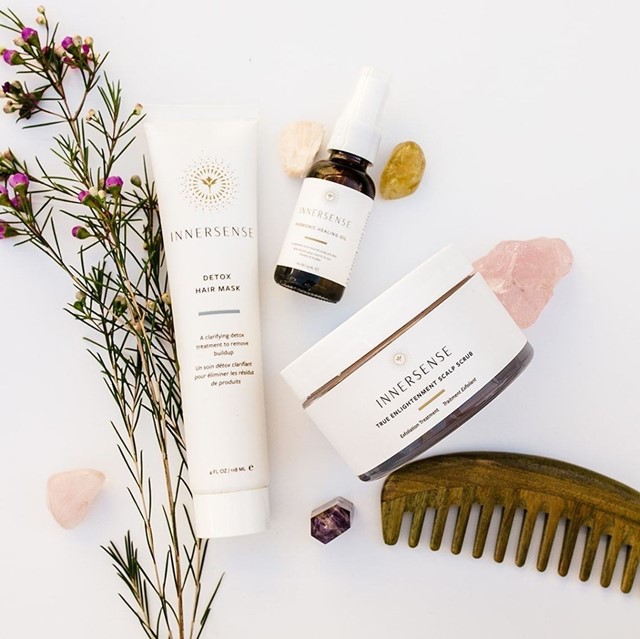 Via @innersenseorganicbeauty on Instagram
Via @innersenseorganicbeauty on InstagramProduction & Initiatives: Innersense
Organic haircare brand Innersense specialises in toxin-free products designed with customer and planet safety in mind. The B-Corporation collaborates with a variety of charitable foundations: including Breast Cancer Prevention Partners, which campaigns for ingredient transparency across the beauty industry; Plastic Bank, through which it has pledged to offset its plastic footprint and collect more plastic from the oceans than it produces; and the California Coastkeeper Alliance, a clean water coalition local to Innersense.
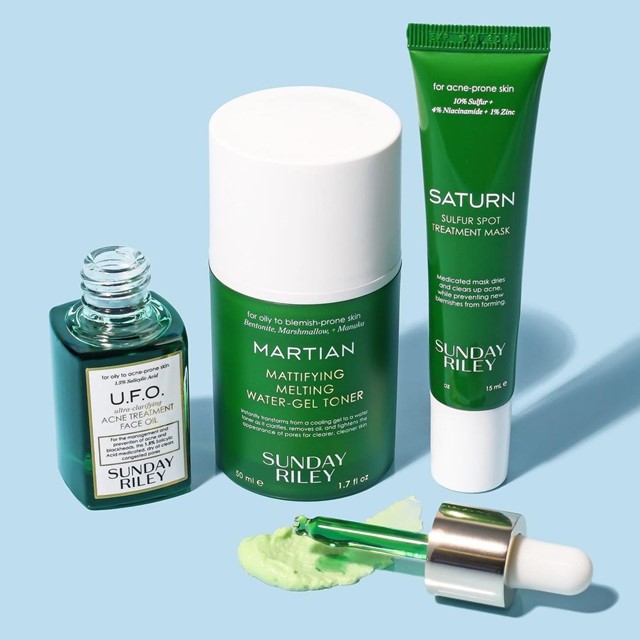 Via @sundayriley on Instagram
Via @sundayriley on InstagramProduction & Initiatives: Sunday Riley
Sunday Riley’s US-produced skincare range is loved for its cruelty-free formulations and cult serums, and as the brand grows its environmental and charitable focus is also broadening. The brand offsets the carbon emissions of its shipping, e-commerce operations and manufacturing processes in a bid to be more energy efficient, has rigid standards for its suppliers in terms of sustainability and human rights, and recent charitable partnerships include the Houston-based animal shelter Friends For Life.
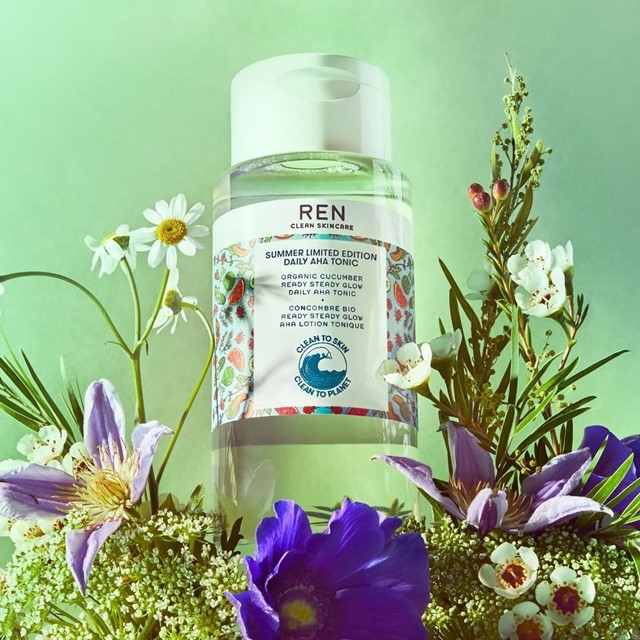 Via @renskincare on Instagram
Via @renskincare on InstagramProduction & Initiatives: Ren
Storied clean skincare brand Ren – which recently celebrated 20 years in operation – holds itself to a high standard when it comes to its environmental and ethical focuses. The PETA-approved brand manufactures its celebrated organic, natural products in the UK, was recently the first beauty brand to make use of ‘infinity recycling’ technology for its plastic packaging, and uses non-toxic, natural original Zinc Oxide mineral in its suncare products as opposed to chemical UV filters which have been linked to damaged coral reefs.
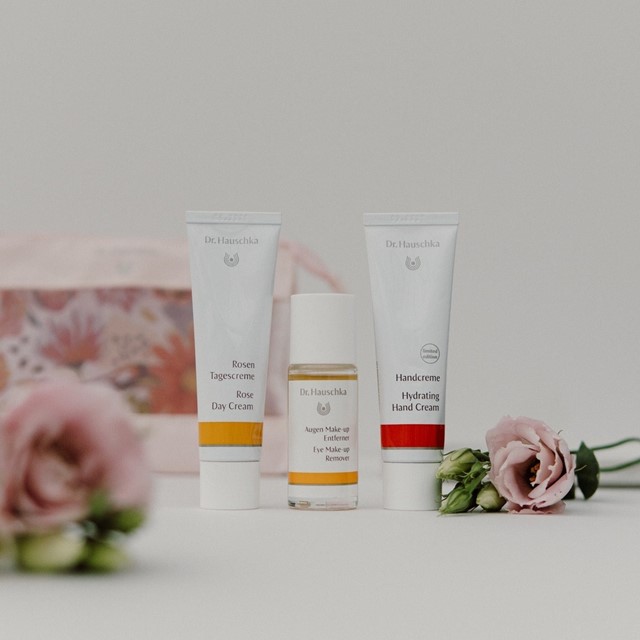 Via @drhauschka.gb on Instagram
Via @drhauschka.gb on InstagramProduction & Initiatives: Dr Hauschka
Beauty and skincare brand Dr Hauschka has a long history of producing organic products using ingredients sourced from the natural world since its namesake founder began the company in the 1950s. The brand focuses on smart, environmentally friendly choices: its ingredients, for example, are organic and sourced from fair trade suppliers, it uses waste efficiently with recycling programmes and reusing rainwater in production processes, and has long used solely green electricity.
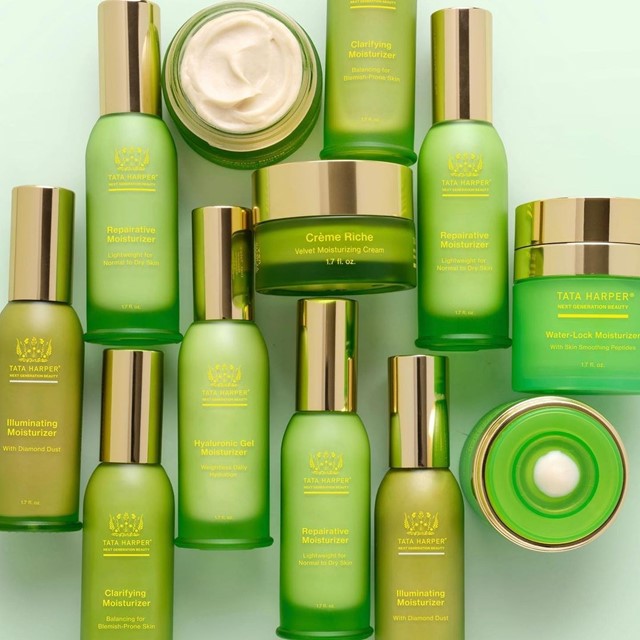 Via @tataharperskincare on Instagram
Via @tataharperskincare on InstagramProduction & Initiatives: Tata Harper
Tata Harper’s paraben-free skincare line is famously packed with natural actives and organic ingredients designed to give unparalleled glow, and the brand started as a small production based at founder Harper’s Vermont farm. As Tata Harper grows, its commitment to using only the best ingredients remains; the brand has also introduced a planet-friendly refill option and uses recycled and recyclable materials. 2021 also sees the start of a new partnership with Trees For the Future, and Tata Harper is planting a tree for every product sold throughout April.
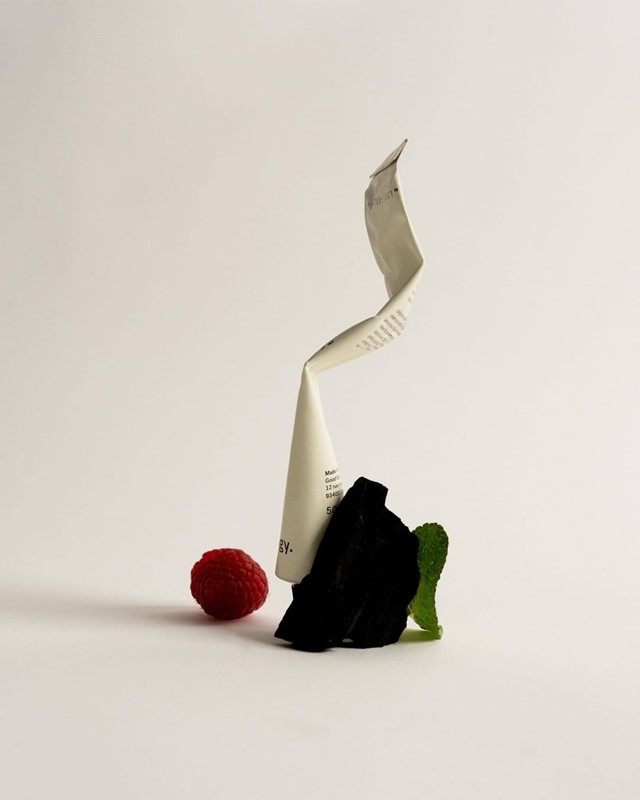 Via @typologyparis on Instagram
Via @typologyparis on InstagramIngredients: Typology
Typology is a young brand making waves in the beauty and skincare industry for its no-nonsense approach to products and commitment to planet-friendly practices. The French brand is a B-Corporation, and part of its environmental focus is its use of organically farmed ingredients, as well as producing its skincare and make-up range in France.
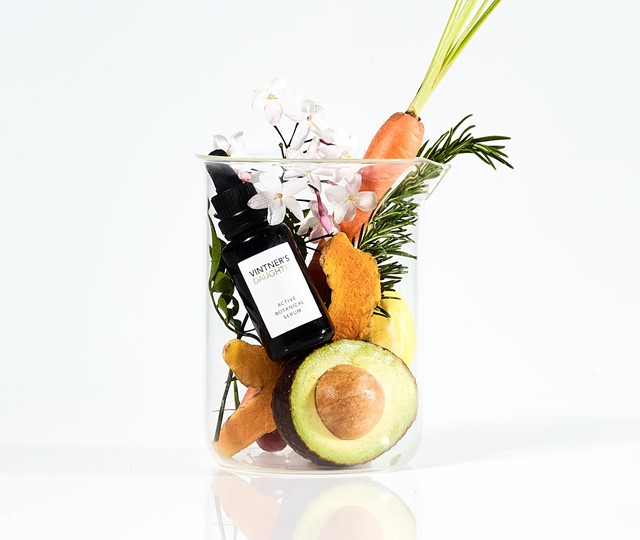 Courtesy of Vintner’s Daughter
Courtesy of Vintner’s DaughterIngredients: Vintner’s Daughter
California-based brand Vintner’s Daughter is known for its small but mighty product range: Active Treatment Essence and Active Botanical Serum, both of which are densely packed with nutrients. The natural, plant-based ingredients in the two cult serums are treated to a gentle, three-week long extraction process which ensures the highest potency and quality. The idea is to pare back skincare routines of countless steps: Vintner’s Daughter’s hero products are meticulously crafted and work hard.
 Photography by Lola & Pani, Set Design by Hella Keck
Photography by Lola & Pani, Set Design by Hella KeckIngredients: Costa Brazil
The ingredients in Costa Brazil’s line of products are sourced with the environmental impact in mind: the brand is all about “restoration and preservation”. All natural, Costa Brazil’s oils and creams are produced using ingredients which have been wild-harvested where possible, thus limiting the damage done to the local environment, and the sustainability initiatives of suppliers are checked regularly. Costa Brazil also partners with organisations dedicated to conservation both in Brazil – specifically the Brazilian Amazon – and around the world.
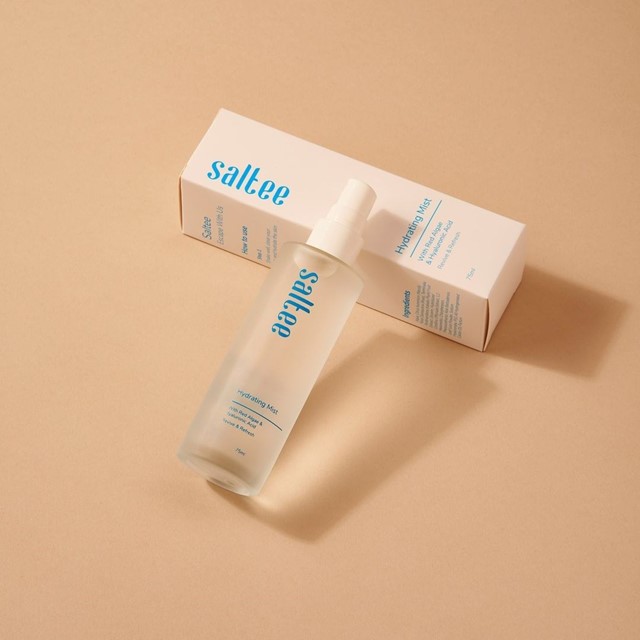 Via @salteesun on Instagram
Via @salteesun on InstagramIngredients: Saltee
London-based brand Saltee specialises in a range of products to protect against sun damage, and was launched with the aim of creating a planet- and skin-friendly line. Saltee’s offering is vegan, paraben-free and cruelty-free, and its hero ingredients are responsibly sourced so as to limit the impact: the UV-protective venuceane in its SPF 50 face creams, for example, is organic and sourced naturally from the Caribbean Sea.
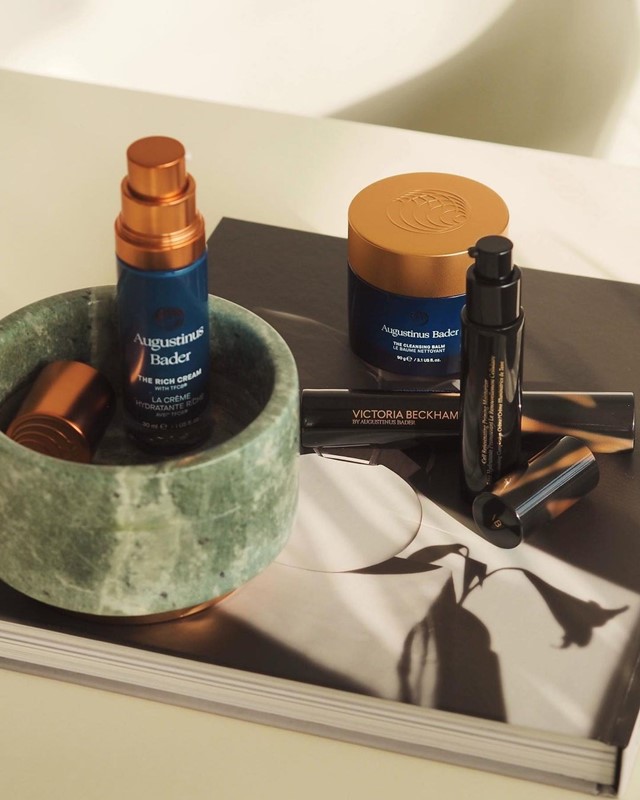 Via @augustinusbader on Instagram
Via @augustinusbader on InstagramIngredients: Augustinus Bader
Luxury skincare brand Augustinus Bader is “guided by a set of green values” in its production and practice. Beyond partnering with reforestation organisations and carbon balancing initiatives, Augustinus Bader’s ingredients are acclaimed for their quality, potency and sustainable sourcing; plus, the company uses bio-engineered actives where possible.
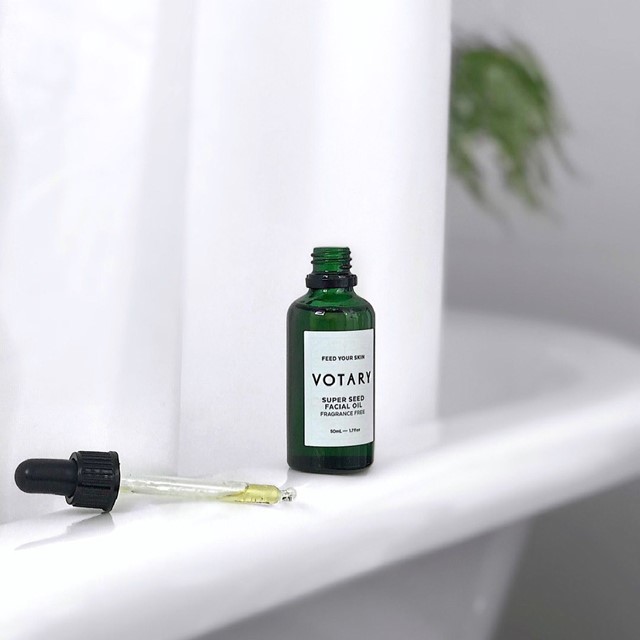 Via @votarylondon on Instagram
Via @votarylondon on InstagramIngredients: Votary
UK-based brand Votary has won fans for its luxurious oils – derived from plant-based ingredients and brimming with natural botanical actives. Votary’s oils, serums and masks are produced in small batches in the UK, and use organic ingredients where possible (some of the oils it uses are not available organically). Its products are also cruelty-free and vegan.
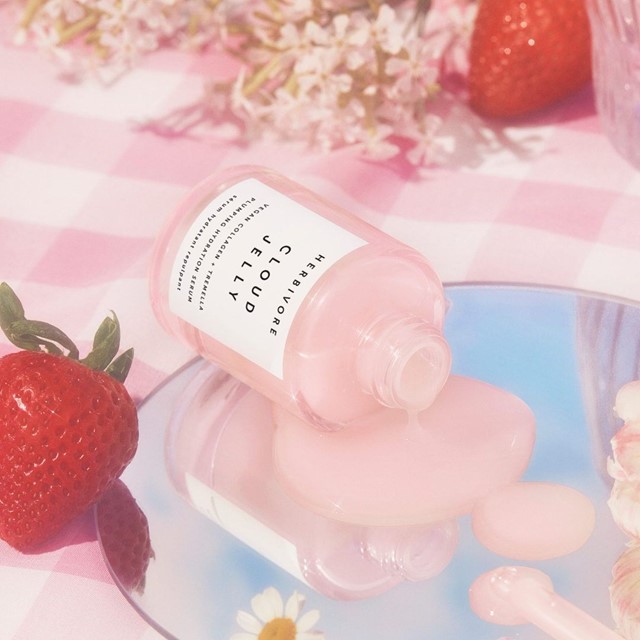 Via @herbivorebotanicals on Instagram
Via @herbivorebotanicals on InstagramIngredients: Herbivore
Herbivore prides itself on “sensorial beauty”. Free of synthetics and parabens, the Seattle-founded Herbivore’s skincare products are natural, plant-based and cruelty-free. The brand also sources its organic ingredients from within the US where possible.
